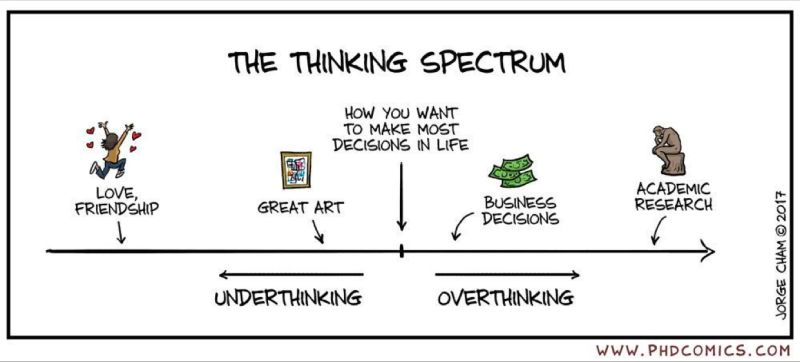On what is relevant research (or it depends on your audience)
- Jason Thatcher
- Dec 28, 2022
- 2 min read
Recently, I was asked what doesn’t relevant research mean? And how do you know your work is relevant?
This is a tricky question - that took me a long time - to see what was difficult about answering it.
On the one hand, critics suggest that professors do research that is not relevant to the world.
They contend that we are slow to market with ideas, that our work does not move as fast as industry, and that our work does not speak to issues of every day people.
Often, these critics come from within academe by people working closely with industry or companies that need research completed to stay competitive.
Their complaints have much truth to them - a lot of academic research is not directly relevant to industry.
However, this is not necessarily a bad thing, a lot of great ideas have come from research conducted for research’s sake.
Companies that want to have research relevant to their products completed (without allowing for academic exploration of ideas) likely need to fund an in-house lab … but that’s another conversation.
On the other hand, critics of academe omit the importance of relevance to ongoing academic conversations.
They forget that early career researchers (and all researchers for that matter) need to attend to the topics and methods that their field is interested in.
In order to do the right to keep on doing research (in practice or industry), you need to demonstrate competence being able to conduct rigorous work.
Doing so, suggests that you have the ability to design, direct, & execute studies of sufficient rigor that multiple blind reviewers are convinced your work has merit.
While criticized for being slow, this onerous process also provides assurance that the work is of high quality - something that most quick to market industry research does not do.
Along with quality control, this process offers assurance that a researcher knows a domain well enough to authoritatively speak on a specific topic or set of topics.
While both forms of relevance imply solving problems - they are for different audiences, have a different cadence, & a different purpose.
Ideally, a researcher can hit a sweet spot of speaking both to industry and academia.
They cross publish or cross present at industry and academic events.
Unfortunately, most researchers are ill-equipped to do both.
To do so requires, participating or being attentive to both conversations & knowing how to communicate in the language of both communities.
I have seen a few people at Google & MS Research do this well. I have also seen a few faculty do this well.
Most often, these people are state of the art thinkers who have invested heavily in a specific topic & taken the extra step of cultivating contacts & are further along in their careers.
Ideally, we will start training PhD students such that they can participate in one or the other or both worlds.
But that’s a topic for a later post!




Comments